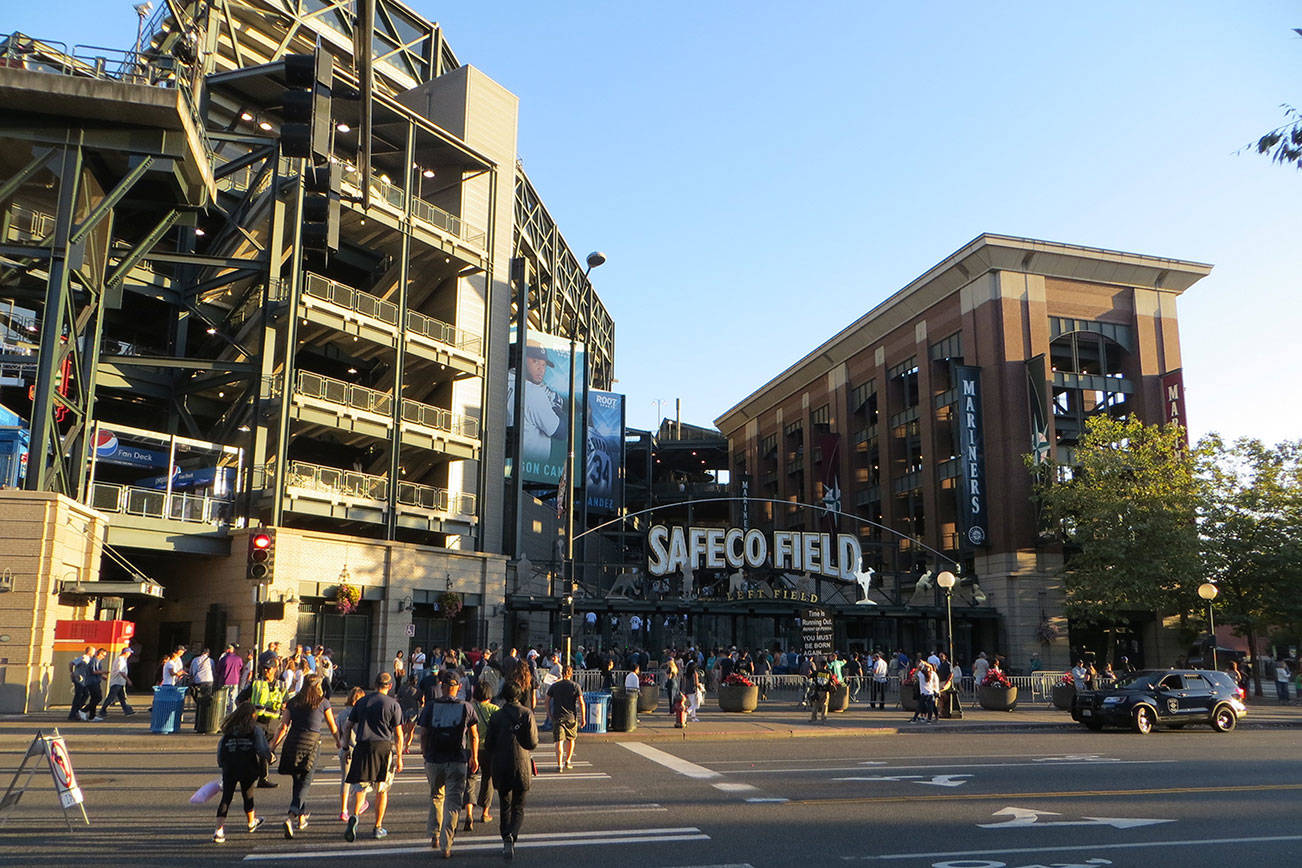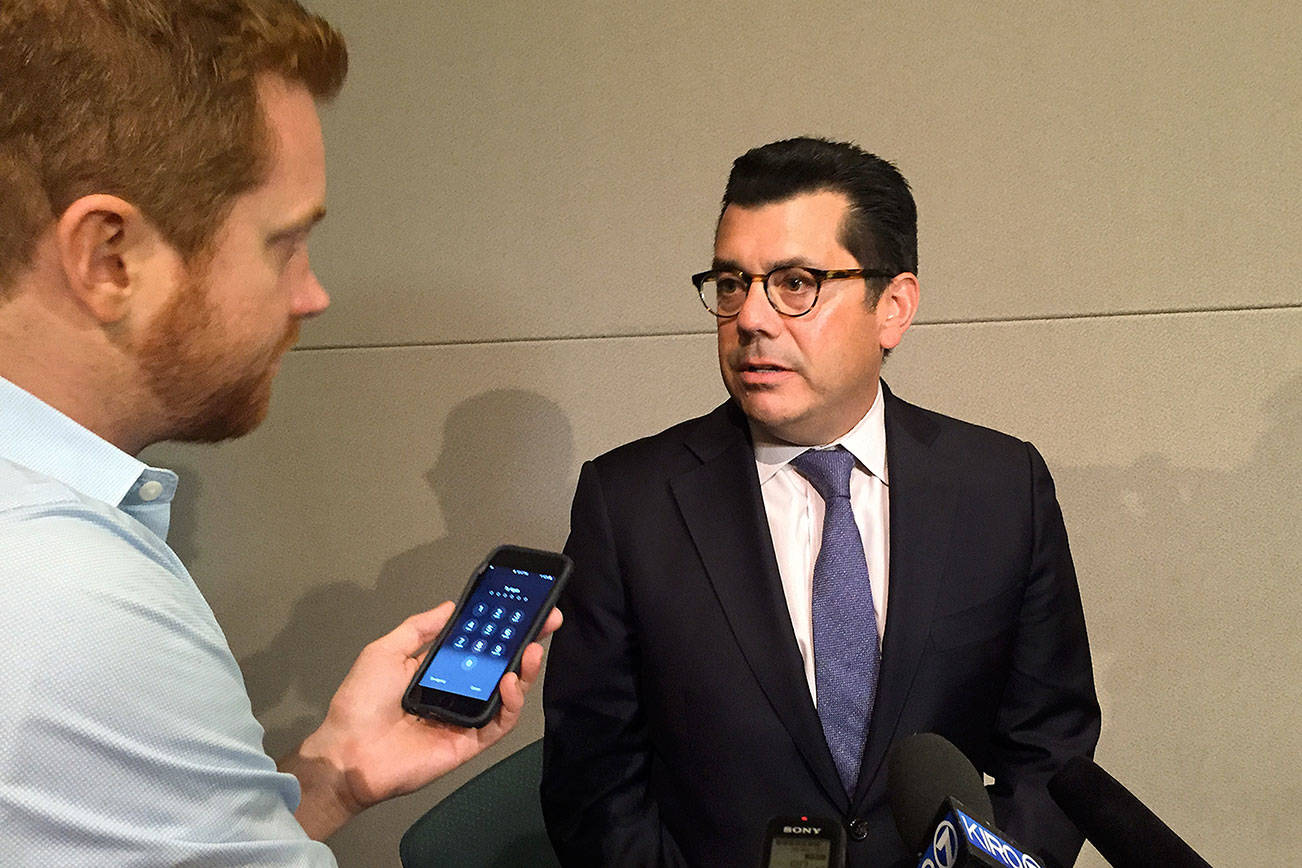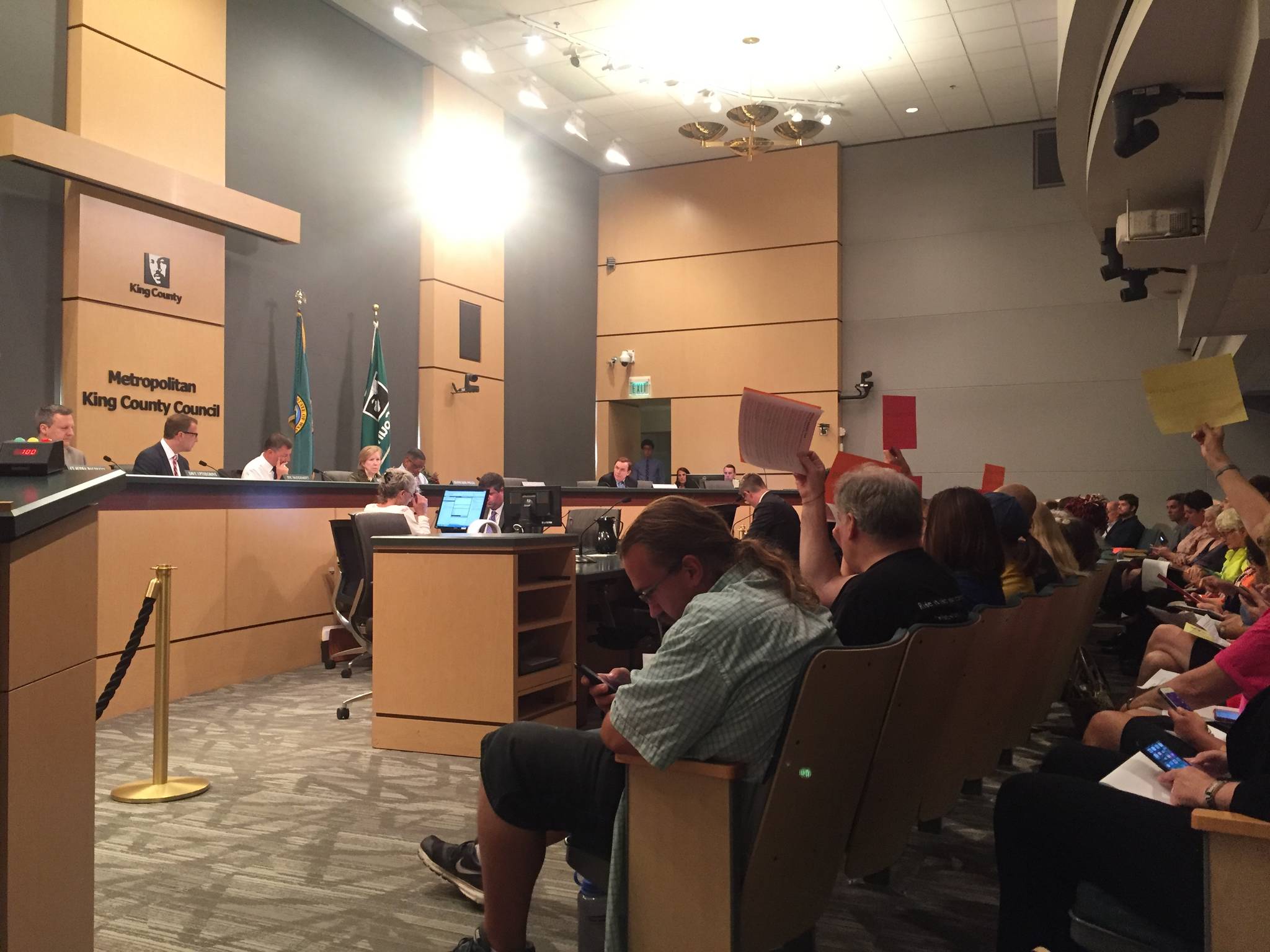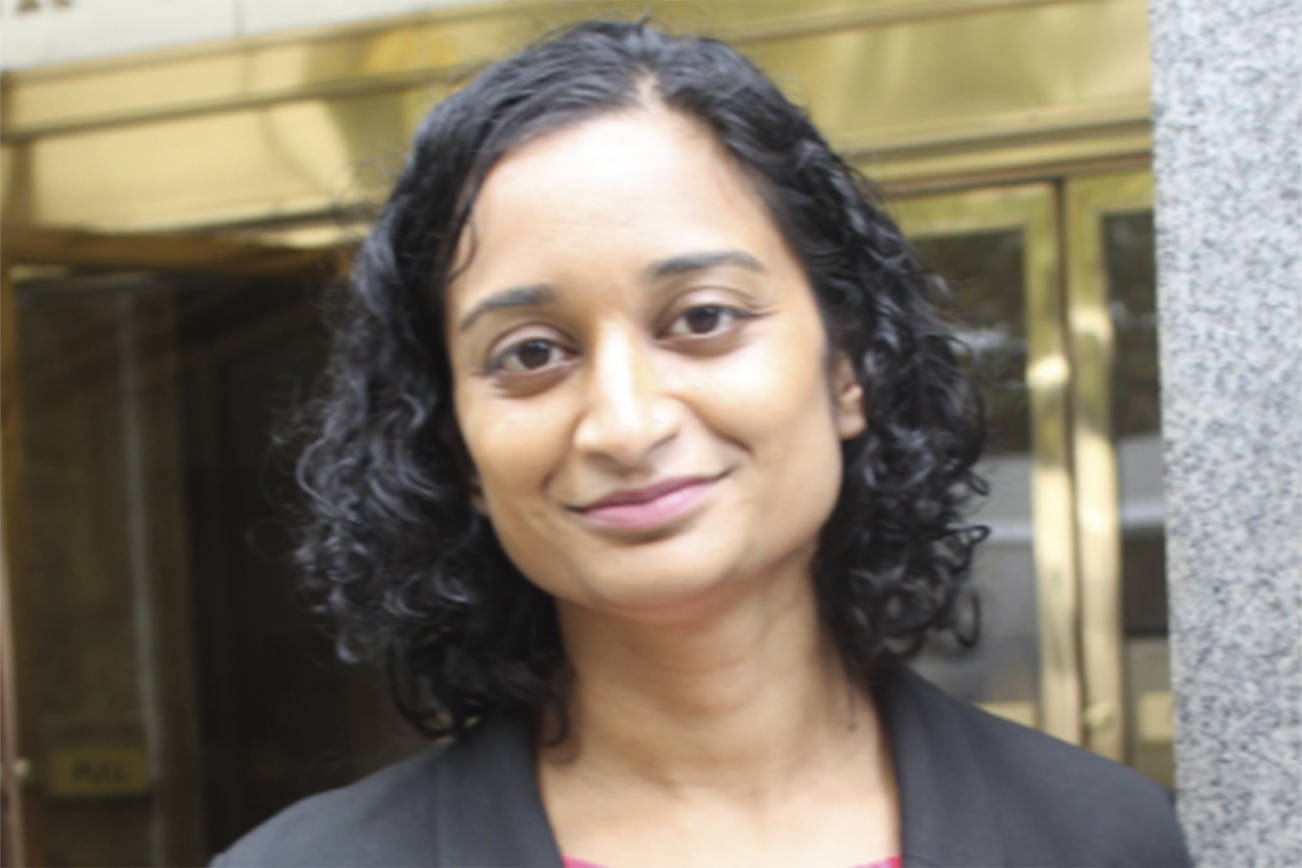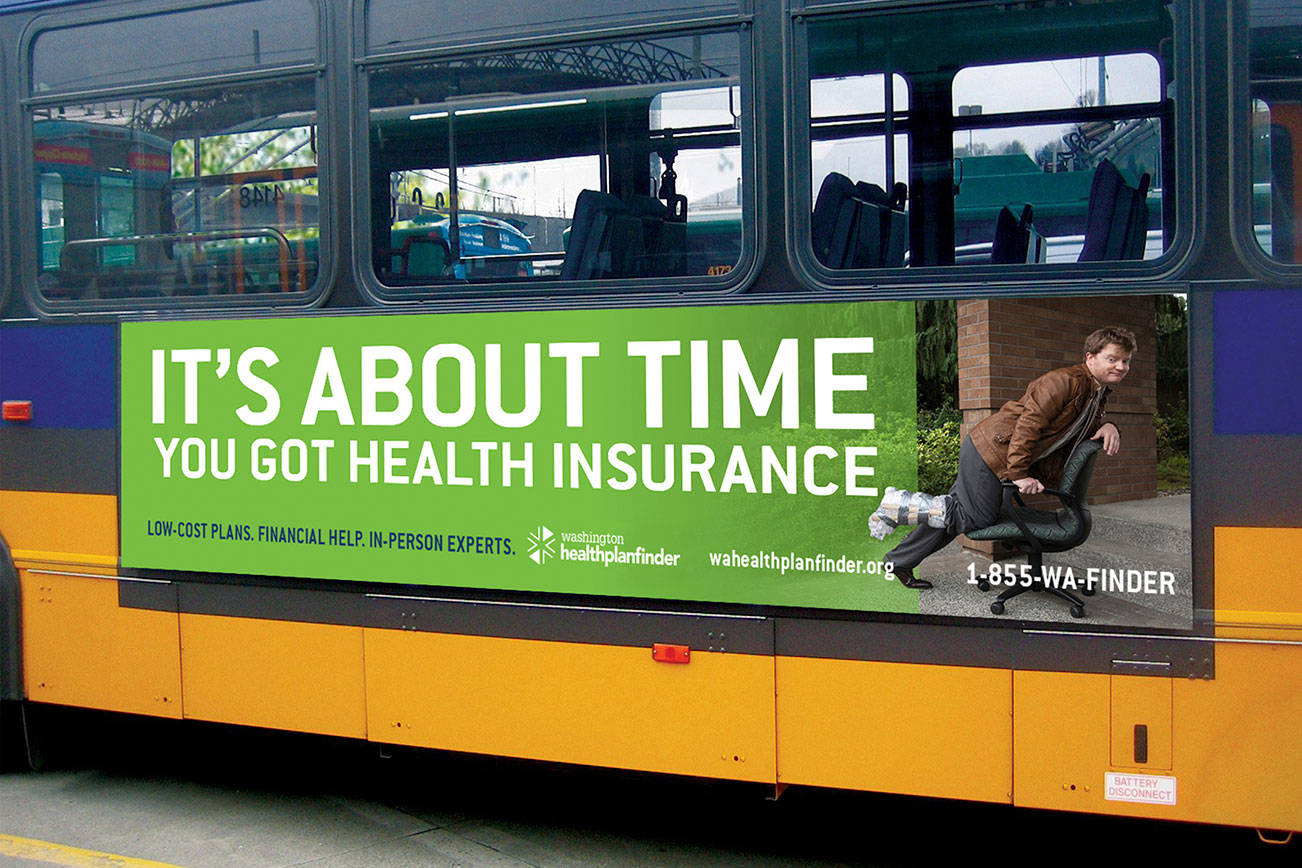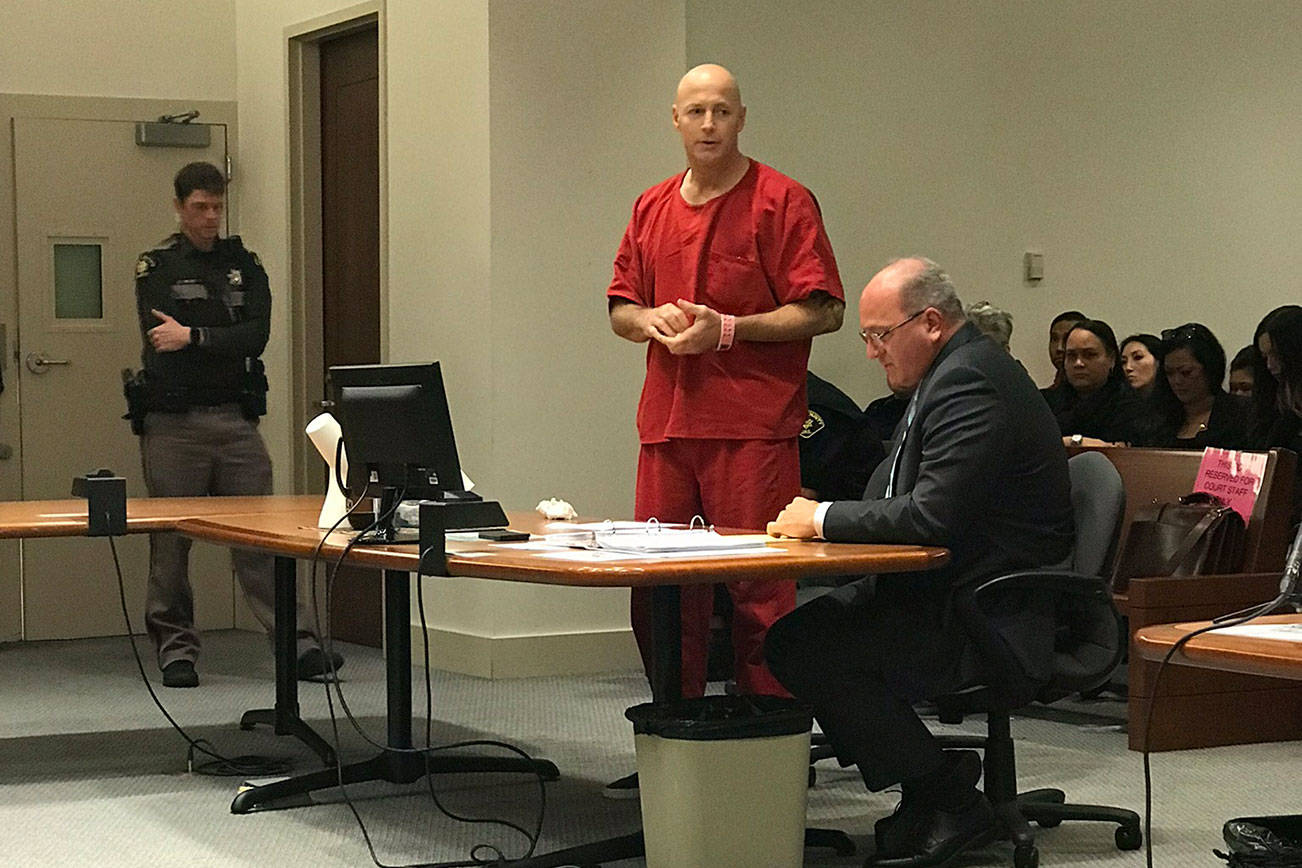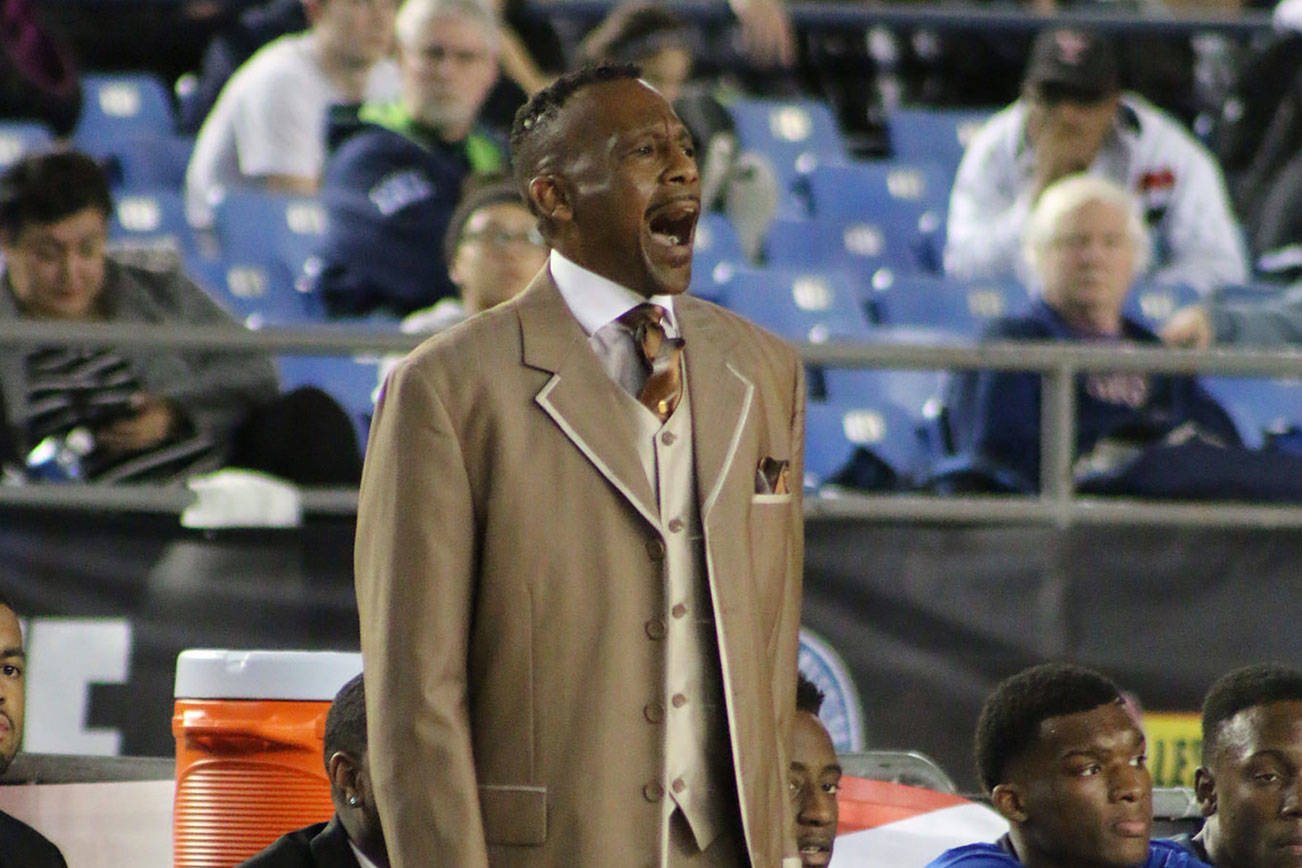King County Executive Dow Constantine’s proposal to allocate around $180 million in county funds towards upkeep at Safeco Field got its first hearing at jam-packed King County Council committee meeting on Monday, July 30. And the message from the present interest groups and constituents was largely critical, arguing that the county has more pressing issues to invest in like housing and homeless services.
“I’m a lifelong baseball fan. I’m a Mariners fan for about 40 years and I am here to ask you not to give the Mariners any money at all,” said Jim Lobsenz, a local attorney, to applause from the audience during public comment at the July 30 hearing. “My understanding is that the largest shareholder in this corporation [the Mariners] is Mr. Stanton. Bloomberg says he’s worth $1.1 billion. He does not need public money.”
“When I first saw the headline about this meeting I thought it was an Onion article,” said Eliana Scott-Thoennes, a Seattle resident. “That we’re really having this meeting, that you’re really seriously considering spending $180 million on a stadium when we have this crisis that we’re facing … I’m sorry that it wasn’t a joke.”
On May 23, the Seattle Mariners and the Public Facilities District (PFD)—the public entity that manages Safeco Field, which is owned by the county—announced that they had come to an agreement on terms for a new 25-year stadium lease. That same day, Constantine rolled out his plan to allocate roughly $180 million in tax revenue from the lodging tax on hotels and motels towards upkeep at Safeco Field over the next two decades, prompting County Councilmember Dave Upthegrove to argue that the funds could be put towards affordable housing.
Last week, Seattle Weekly reported that the Mariners won’t sign their new lease unless the county allocates $180 million in funds. And while the sports team claims that it won’t leave Seattle if the council doesn’t approve the money, they would go back to the negotiating table with the PFD on lease terms and likely sign a short-term extension of their existing lease (which is slated to expire at the end of this year). The Mariners have argued that, since the stadium is a publicly owned asset and that the team plans to invest a little over $200 million in maintenance, that the county should pay for upkeep like work on the retractable roof and the HVAC system.
At the July 30 hearing, Mariners Executive Vice President and General Counsel Fred Rivera said that based off an outside consultant assessment on the facility’s long-term capital needs, Safeco needs $800 million in upgrades and maintenance to keep it in first-class condition through 2041. That includes $385 million for necessary improvements, over $200 million for day-to-day maintenance and operations, and $180 million for enhancements like a brew pub and expanded parking lot.
Safeco Field was originally financed through over $370 million in public funding and $145 million from the Mariners. The land for the stadium was also donated by the county. The team remains the sole tenant.
Under the current legislation, the roughly $180 million from the county would only go towards funding the “necessary” improvements; the Mariners would pay for everything else. “We’ll have to fund [upgrades] to make sure we keep up with modern trends in ballparks,” Rivera told reporters after the hearing. “The public money will not go for a brew pub. The public money will go to the PFD … It’s for things like the roof, for plumbing, for HVAC, for electricity, some very basic elements of the structure and not for any, what we’ve termed as ‘capital upgrades.’”
The county money up for debate comes from new lodging tax revenue. The tax has traditionally been used to finance other sports stadiums like the Kingdome and Centurylink Field, and, the debt on those projects will be paid off in 2020, freeing up roughly $36 million annually. State law dictates that at least 37.5 percent of the tax revenues fund affordable housing, another 37.5 percent to arts and culture investments, and the remainder to tourism promotion. (Specifically, state law says that the portion for housing can go towards affordable housing near transit stations or homeless youth services.)
Councilmember Upthegrove has argued that, since statute doesn’t require that a minimum amount of the funds go towards tourism promotion, the amount for affordable housing can be increased. During the July 30 hearing, county staff confirmed that state law allows for shifting more of the tourism dollars over to affordable housing.
The issue is now in the King County Council’s court, where putting the money towards Safeco Field has a seemingly solid base of support. At the July 30 meeting, representatives from organizations like the Housing Development Consortium and Seattle/King County Coalition on Homelessness lambasted the proposal.
“[I’m] here to ask you to oppose the executive’s proposal and to instead allocate the maximum allowed by the state law to affordable housing from the lodging tax,” said Michelle Thomas, director of policy and advocacy at the Washington Low Income Housing Alliance. “There’s a housing affordability crisis in King County. It is the issue of our time. You have the opportunity to allocate much needed capital dollars to affordable housing. …We need to build more workforce housing. The private market isn’t building it. It isn’t going to build it. Your constituents are in desperate need of options.”
Regional homelessness and housing costs have been escalating rapidly in tandem. The most recent annual One Night Count found a little over 12,000 people experiencing homelessness, and county officials have estimated that there is a need for 90,000 additional affordable units across the county.
“We have an affordable housing crisis. I don’t know what that word means any more if, when faced with a decision like this, we do the bare minimum,” said Katie Wilson, general secretary of the Transit Riders Union at the hearing.
Ethan Phelps-Goodman, founder of a group called Seattle Tech 4 Housing, cited the recent repeal of the controversial employee hours tax by the Seattle City Council as frustrating evidence of local elected leaders’ skewed priorities. “Why is it so hard to find some things and so easy to fund others? Why can we find $180 million for stadiums without breaking a sweat but all hell breaks loose when we try to find money to help the most vulnerable among us get homes?”
Some commenters voiced their support for the Safeco Field allocation during the hearing. State Rep. Eric Pettigrew (D–Southeast Seattle), whose district includes Safeco Field, said that the Mariners have been an “excellent partner.” Others cited the supportive role that the ball team has played for local charities and little league teams.
It remains to be seen how the final council vote will go. The ordinance is being sponsored by Councilmembers Joe McDermott, Jeanne Kohl-Welles, and Pete von Reichbauer, constituting the core voting bloc that will likely support some version of the bill. “We have to recognize that we’re partners in this,” von Reichbauer said at the July 30 hearing. “I don’t want us to get in a nose-to-nose battle.” (Prior to the July 30 meeting, McDermott told Seattle Weekly that “to zero in on one narrow [funding] slice” right now is “losing the big picture” when it comes to funding housing.)
Kohl-Welles, on the other hand, said that the the county doesn’t have to choose between funding Safeco Field maintenance and affordable housing. “For me, it doesn’t have to be an either or,” she said. “What is the right balance? Maybe we have a lesser amount [for Safeco Field] than is in this proposed ordinance.”
Only councilmembers Upthegrove and Rod Dembowski have voiced substantive public skepticism about the proposal. The two led the questioning of both county staff and Mariners’ rep Rivera about the ordinance. (It’s also been reported that Dembowski is a “no” vote on the legislation as it is currently written.)
Councilmembers Claudia Balducci and Reagan Dunn (who was not present at the hearing) did not respond to requests for comment. Councilmember Kathy Lambert, who listened into the meeting by phone, told Seattle Weekly in a text that she is “open to looking at all the comments” and “seeing what the councilmembers agree is in the total best interests” of the county. In a phone conversation, Councilmember Larry Gossett said that while he is still undecided, he would support funnelling more of the money towards affordable housing after hearing public testimony at the July 30 hearing. “I don’t want to tell you that I’m absolutely for or against, but I lean towards giving them far less than the executive is recommending.”
During the July 30 hearing, things got a little heated when Upthegrove pushed Rivera on why the Mariners can’t pay for the upgrades themselves. “If you are to believe Forbes magazine … their valuation of the team shows that the value of the team has increased by over $1 billion over the last seven years. Given that, why can’t the owners [of the Mariners] finance the upgrades?”
Rivera responded by saying, “These are the terms that overall represent a fair allocation of responsibility for a publicly-owned asset.”
